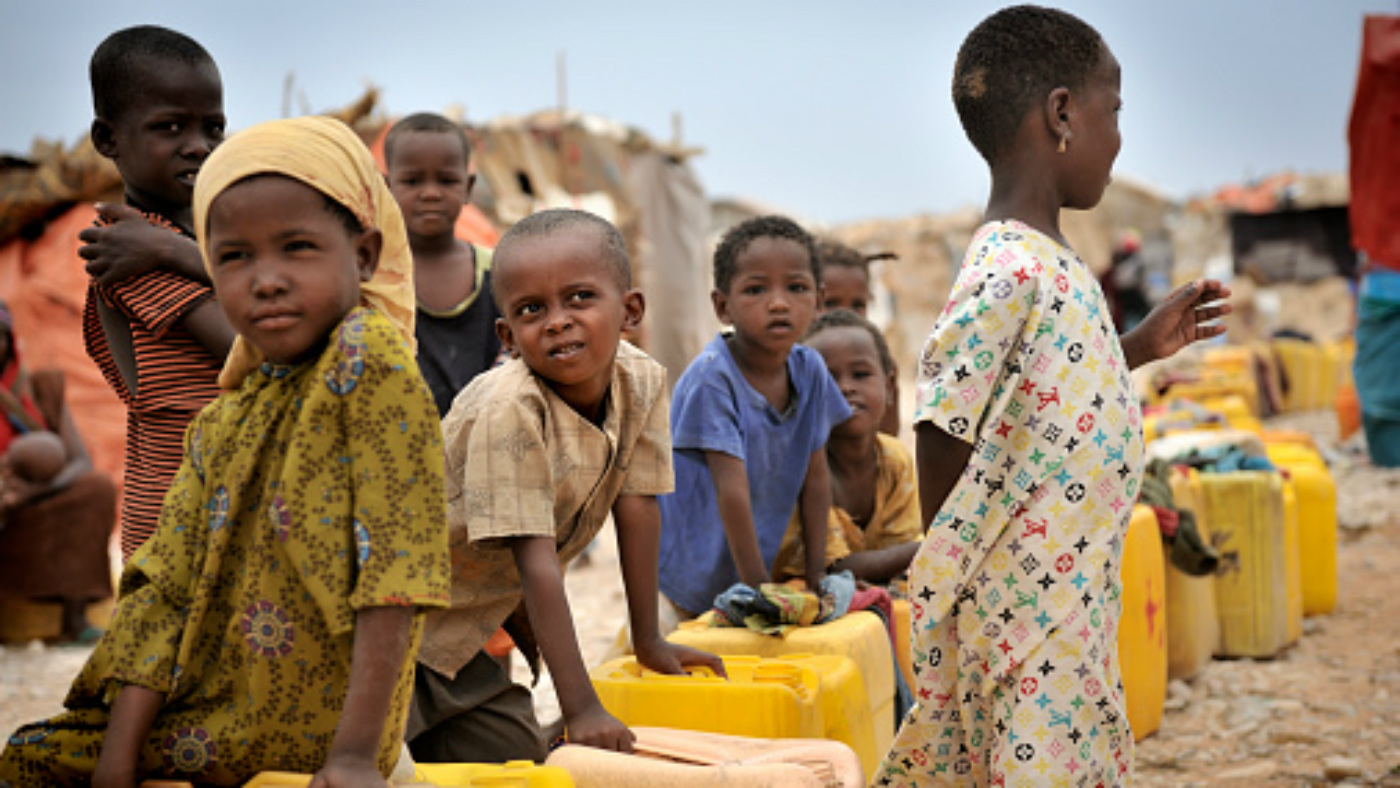Refugees in their own land: The untold story of the internally displaced
Report finds 31 million people were forced to leave their homes and live elsewhere in their country in 2016

A free daily email with the biggest news stories of the day – and the best features from TheWeek.com
You are now subscribed
Your newsletter sign-up was successful
War and natural disasters caused millions of people to leave their homes and settle elsewhere in their country last year, says a report from the Norwegian Refugee Council (NRC).
The Guardian describes the internal displacement crisis as "war's greatest scandal".
What is an "internally displaced person"?
The Week
Escape your echo chamber. Get the facts behind the news, plus analysis from multiple perspectives.

Sign up for The Week's Free Newsletters
From our morning news briefing to a weekly Good News Newsletter, get the best of The Week delivered directly to your inbox.
From our morning news briefing to a weekly Good News Newsletter, get the best of The Week delivered directly to your inbox.
Put simply, it is a refugee in their own country. However, because they have not crossed a national border, internally displaced persons (IDPs) are not classed as refugees.
Because of this, the UN's refugee arm, UNHCR, for many years said it was not responsible for these people. However, in 2005, it signed an agreement with aid agencies to take the lead in protecting them.
How many of them are there?
According to the NRC, 31 million people were forced to leave their homes in 2016, but remained in their home countries. They outnumbered refugees by a factor of two to one.
A free daily email with the biggest news stories of the day – and the best features from TheWeek.com
Of this number, 6.9 million left their homes due to violence or conflict while the remaining 24.2 million were displaced by natural disasters, around half of them by floods. Storms, wildfires and earthquakes also cause internal displacement.
Why do IDPs not receive as much attention as refugees?
The NRC says the international community focuses more on refugees in part because they are easier to define and identify.
Alexandra Bilak, director of the Internal Displacement Monitoring Centre, said: "Not including internal displacement as an integral part of [the] migration picture is very short-sighted... If you redirect attention to the countries of origin and to really understanding the driving forces of these movements it would be a much more strategic approach and investment."
Which countries were the worst affected in 2016?
The NRC separates internal displacement caused by conflict from that caused by natural disaster.With 922,000, the Democratic Republic of the Congo (DRC) had the most IDPs forced into homelessness by conflict, followed by Syria (824,000), Iraq (659,000), Afghanistan (653,000), Nigeria (501,000) and Yemen (478,000).
Famine caused many people to flee their homes in parts of sub-Saharan Africa such as Somalia, Nigeria and South Sudan, but conflict was also a factor in these countries.
-
 Why are election experts taking Trump’s midterm threats seriously?
Why are election experts taking Trump’s midterm threats seriously?IN THE SPOTLIGHT As the president muses about polling place deployments and a centralized electoral system aimed at one-party control, lawmakers are taking this administration at its word
-
 ‘Restaurateurs have become millionaires’
‘Restaurateurs have become millionaires’Instant Opinion Opinion, comment and editorials of the day
-
 Earth is rapidly approaching a ‘hothouse’ trajectory of warming
Earth is rapidly approaching a ‘hothouse’ trajectory of warmingThe explainer It may become impossible to fix
-
 Epstein files topple law CEO, roil UK government
Epstein files topple law CEO, roil UK governmentSpeed Read Peter Mandelson, Britain’s former ambassador to the US, is caught up in the scandal
-
 Iran and US prepare to meet after skirmishes
Iran and US prepare to meet after skirmishesSpeed Read The incident comes amid heightened tensions in the Middle East
-
 Israel retrieves final hostage’s body from Gaza
Israel retrieves final hostage’s body from GazaSpeed Read The 24-year-old police officer was killed during the initial Hamas attack
-
 China’s Xi targets top general in growing purge
China’s Xi targets top general in growing purgeSpeed Read Zhang Youxia is being investigated over ‘grave violations’ of the law
-
 Panama and Canada are negotiating over a crucial copper mine
Panama and Canada are negotiating over a crucial copper mineIn the Spotlight Panama is set to make a final decision on the mine this summer
-
 Why Greenland’s natural resources are nearly impossible to mine
Why Greenland’s natural resources are nearly impossible to mineThe Explainer The country’s natural landscape makes the task extremely difficult
-
 Iran cuts internet as protests escalate
Iran cuts internet as protests escalateSpeed Reada Government buildings across the country have been set on fire
-
 US nabs ‘shadow’ tanker claimed by Russia
US nabs ‘shadow’ tanker claimed by RussiaSpeed Read The ship was one of two vessels seized by the US military